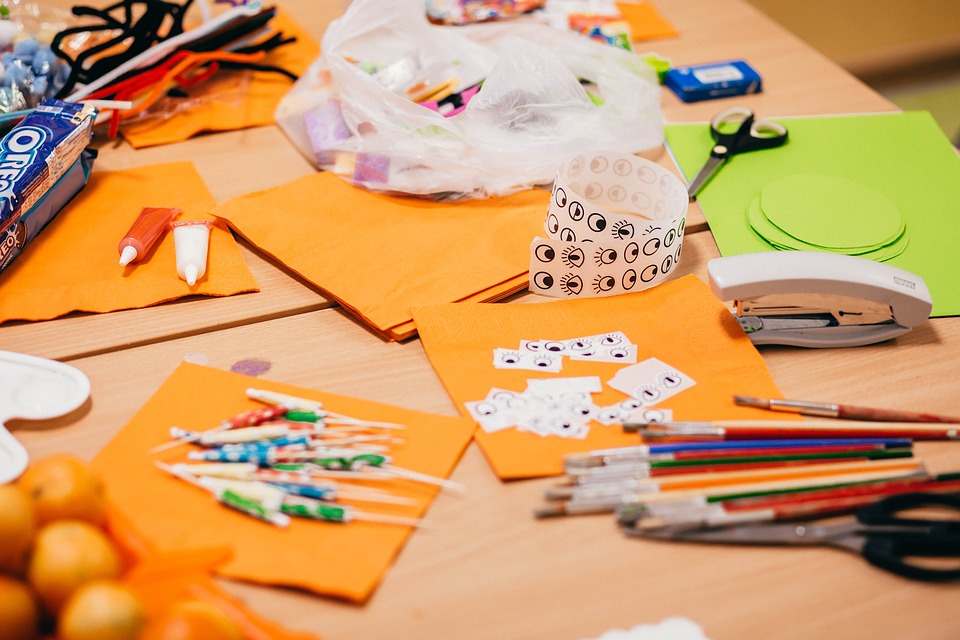Eid al-Adha—the Festival of Sacrifice—is a major religious holiday Muslims celebrate annually. It marks the culmination of the Hajj rites (holy pilgrimage) on the tenth day of the twelfth month of the Islamic lunar calendar. According to Muslim tradition, the four-day festival commemorates the willingness of Prophet Abraham to sacrifice his own son Ishmael as a symbol to prove his faith in Allah. For His mercy, Allah ordered angel Gabriel to substitute Ishmael with a lamb.
Muslims honor this event worldwide by sacrificing an animal, usually a lamb, which is then divided among their families and the poor. Starting the day with special prayers, Muslims then visit each other and exchange greetings with the phrase “Adha mubarak”, meaning “blessed celebration”, and enjoy festive meals. The main dish is lamb or goat, but the way it is prepared varies from one country to another.
This year, why not add more fun to the celebrations and carry out one or more science activities with your children? Enjoy the Festival with wonderful, yet simple and easy, science activities for both playing and learning.
I Can Draw A Sheep
This activity is great for all ages. Have a pencil with an unused eraser, a sheet of colored paper, and white paint. Ask your child to dip the eraser in the paint and stamp several circles close together. As you add more circles, the shape will start to look like a woolly sheep. Draw as many sheep as you want then let the paint dry. Use a black pen to complete the sheep by drawing the eyes, horns, and legs.
Explore with your child the different shapes you can simply draw using little circles and different colors, and watch the results together. This will help your child build a strong understanding of geometry and the shapes they are exposed to in their daily life. You can draw flowers, houses, stars, or even a complete scene from our environment; unleash your imagination!
Soft Like A Sheep
This activity is great for toddlers and preschoolers. Collect various materials for your child to feel: smooth, furry, bumpy, or rough. You can show fabrics such as a piece of sandpaper, fake fur, a wool sock, etc. Let your child explore the various textures and notice the differences between them, whether rough as stone or soft as sheep.
Now, have a sheep picture printed on paper, cotton balls, and glue stick. Invite your child to cover the entire shape with glue and press the cotton balls on the glue to add texture. Your toddler will definitely enjoy using the glue stick on his/her own, and arranging the cotton balls on the sheep. Children learn about the world using their senses, and it is important to let them explore their sense of touch.

.png)
Eid Time
This activity is suitable for several kids within a family gathering. Bring balls of yarn and stick on them different farm animal prints/drawings. Put the balls in a basket and place it on a table. Invite each child to pick up a ball and ask them to name the animal. Discuss with them farm animals, what they eat and drink, where they live: stable, barn, henhouse, etc.
Now bring a set of recycled materials that are safe, such as cereal boxes, milk cartons, plastic bottles, toilet paper rolls, egg cartons, etc. Ask the children to start building a farm model that may include a fence, barn, exercise area, etc. After building the model, ask them to place the balls in their correct places.
Your children will learn about the importance of recycling, and you may need to introduce the term to them. Tell them how our wastes can be a threat to the environment, and by converting waste into reusable materials we can help protect the environment. The children may need your help throughout the activity to complete the model, but definitely they will be proud of the outcome.
 Now, you have played with your kids, and you both enjoyed unforgettable science and Eid themed experiments. Always remember that holidays and festivities are not always about food!
Now, you have played with your kids, and you both enjoyed unforgettable science and Eid themed experiments. Always remember that holidays and festivities are not always about food!
References
kids.britannica.com
socialstudiesforkids.com
illinois.pbslearningmedia.org
educatall.com
kids.nationalgeographic.com
laughingkidslearn.com
mamasmiles.com
proudtobeprimary.com